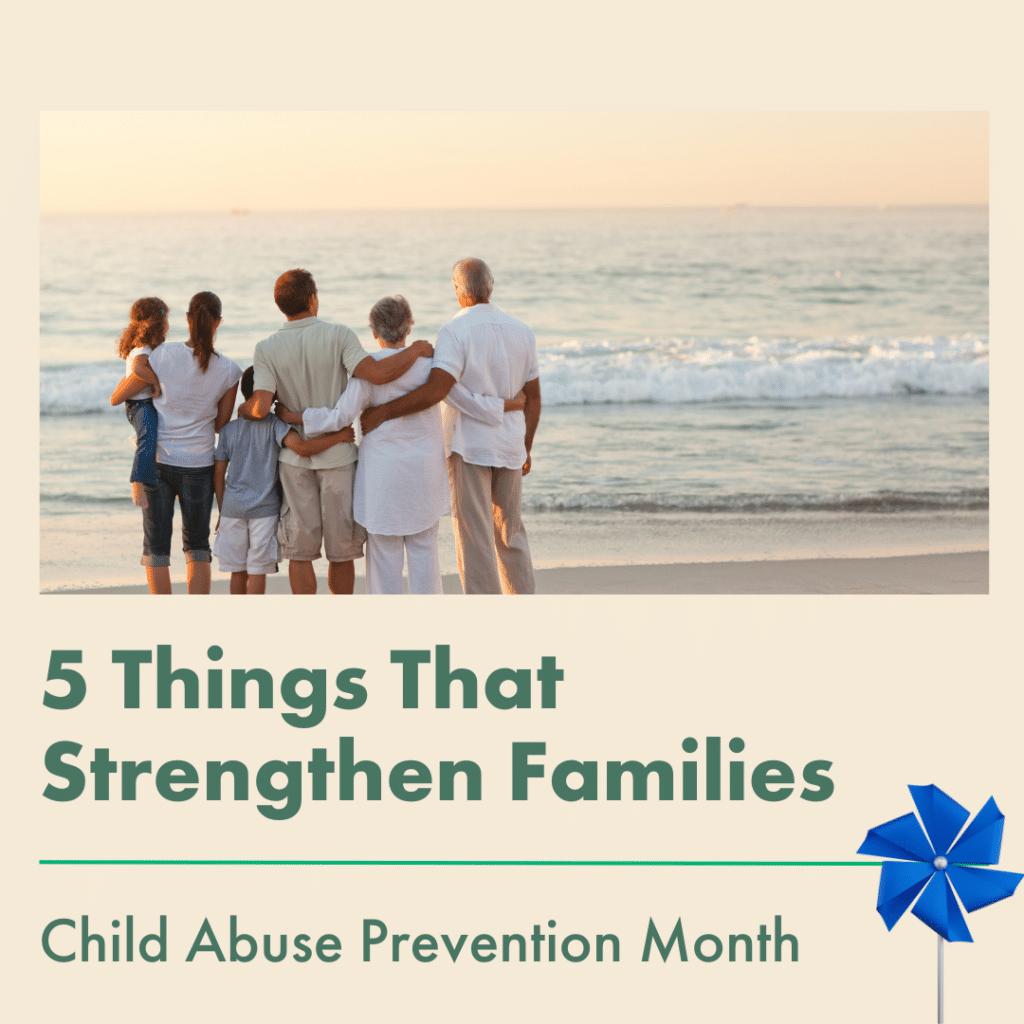How Child Abuse Prevention Month Connects to Foster Care
April is National Child Abuse Prevention Month, a time for everyone to think about the part we all play in preventing child abuse. The most common kind of abuse is neglect (which is the most common reason children enter foster care) which is often related to issues of poverty, lack of community to help the parents, and no access to resources.
The Every Child Indiana network is striving for more than enough for children and families before, during and after foster care. This network of organizations believes that every child in Indiana can have a safe, loving home through the power of community. Part of that work that we do is asking folks with big hearts to open their homes. Another part is helping children stay in their biological family, when it is safe for them to do so.
There are Five Protective Factors determined to be the foundation of a strong, healthy family. These five characteristics have been shown to make positive outcomes more likely for young children and their families, and to reduce the likelihood of child abuse and neglect.
Read more to find out if you know all five!

Parental Resilience
Parenting is not easy, but parents learning to healthily handle and cope with stress is essential to family strength. This means being able to bounce back when times get hard!
Social Connection
You know the saying: “It takes a village”? Social connection and having those parents can go to when they need support, a meal, or just someone to talk to is essential for a strong family.
Knowledge of Parenting and Child Development
There is no one manual on how to be a parent, but there are resources out there for parents wanting to learn more on childhood development and behavior.
Concrete support in times of need
Do you have the resources you need in times of crisis? An important prevention for keeping families strong is to help them identify resources and tools they can use in times of need.
Social and Emotional Competence of Children
Children’s social and emotional skills are just as important as academic ability. It’s important that parents nurture a child’s emotional wellbeing and teach them how to talk about their emotions.